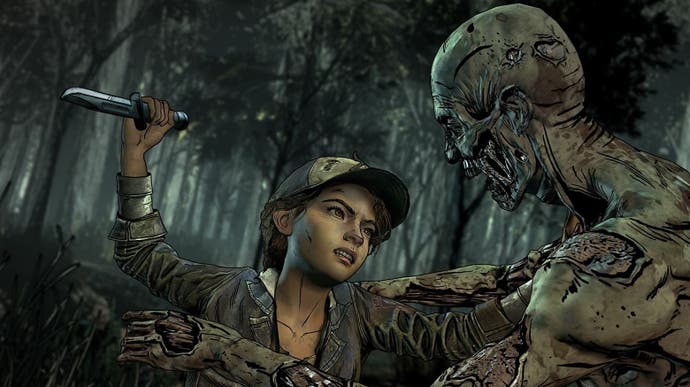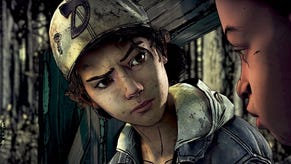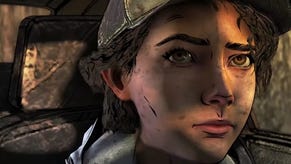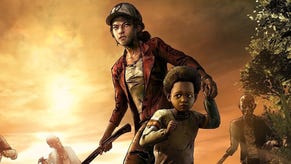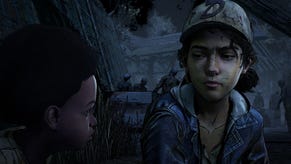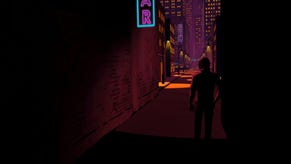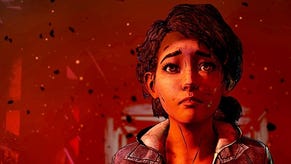The Walking Dead - The Final Season Episode 4: Take Us Back review - It was never going to be easy to say goodbye to Clem, was it?
Dead end.
I thought he was just another corpse at first.
Body bruised and blackened, he looked dead, anyway. That said, I'm so used to death at this point - both the humdrum and the heartbreaking ones - I barely register the bodies scattered around, and didn't notice this one at all until he raises his head. He lifts bloodshot eyes to mine and begs for mercy, pleads to be put out of his misery. Clem stares back, unblinking.
My gut instinct is to oblige, of course. Perhaps yours would be, too. But I hesitate. I have no idea how many bullets are in the chamber of this misappropriated firearm. What if I'm one bullet short for a key fight later? What if stopping this guy from turning now means he isn't there to attack someone - someone bad - further on in the story? My decision-paralysis roots Clementine to the spot and I realise how deeply Telltale's evocative take on Robert Kirkman's cruel, zombie-soaked universe has affected me.
I realise I'm not as scared of the undead as I am of making the wrong decision.
Every choice has a consequence here. Every decision comes at a price. It gets in your head, muddying every choice, making you second- and third-guess each one until you're dizzy with indecision. With a resolute sigh, I step past the dying man, studiously ignoring his cries - "No, no, no, no" - when he realises I don't have the compassion he so desperately needs. But neither Clem nor I have time to dwell on that right now.
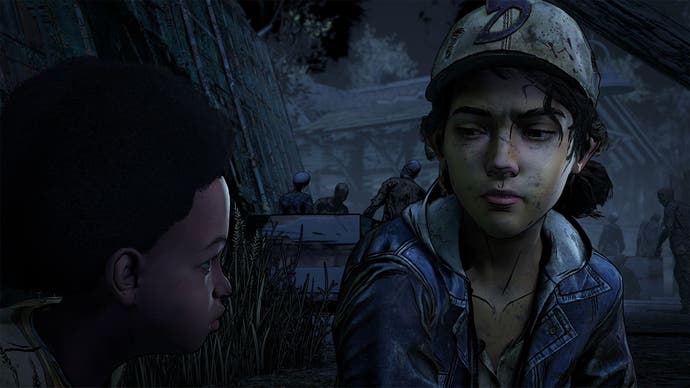
For me, this is the magic of Telltale/Skybound's The Walking Dead. For all its world-building and brutality, for all the times it intentionally, almost gleefully, presents you with a no-win choice that'll make you agonise no matter which way you turn, it's the survival instinct it breeds in you - in Clementine - that's most affecting. You want to be merciful. You want to be kind. But in the battle for survival, what good does kindness do?
I'll admit that I've not always been a fan of those early Telltale TWD adventures, and I've grown cynical at how they manipulate events - manipulate you - to wring out maximum torment. Like its television sibling, this is a series built on shock value and savagery, sending us reeling from one agonising decision to the next, forcing us into horrific situations where one wrong button could lead to devastating permadeath.
It's strengthened me, though. Clementine, too. The girl we met all those years ago may have been hardened by what this world has thrown her way, but it's not broken her. Not yet. Charged to care for orphan AJ - an effective if an unsubtle echo of her relationship with Lee - we've watched on as she's grown and adjusted to this unexpected maternal role.
But just as Clem stole Lee's story, AJ sits firmly at the centre of hers. There are other characters too, of course, and I've affection for the whole gang of plucky adolescents, but it's AJ's dubious morality that takes centre-stage. Born into a brutal, baleful world this child has become a product of his broken environment, his life of scavenging and survival forging an unforgiving, ruthless soul with none of Clem's benevolence. Where Clementine sees grey, AJ sees only black and white. Where she pauses to consider, AJ's already pulled the trigger. It makes him every bit as dangerous as the Walkers.
The graphic-novelesque visuals are gloriously macabre in their portrayal of bloody geysers and broken bones. The story plays out as it always has, a selection of button-mashing and quick-timing events peppered through a series of scripted combat and exploration sequences. Neither the button-mashing or the quick-time events are particularly challenging - there's a reason why Telltale's games have become as popular as they are, and their accessibility is a big part of that - but they're surprisingly effective. Desperately smashing X to barricade a door really does convey a palpable sense of panic.
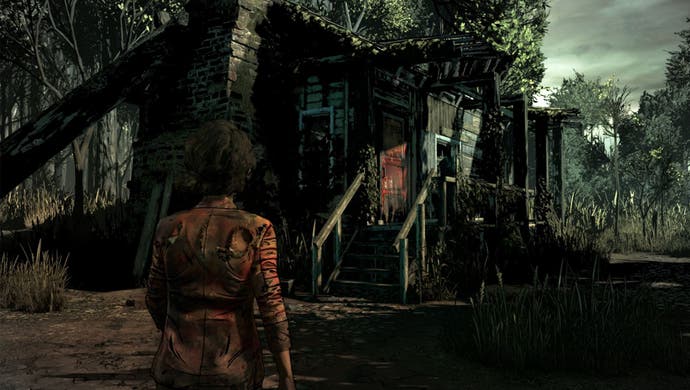
The balance still isn't right, though. Like the episodes before it, this final instalment is only a couple of hours long, half of which you'll either be running away from herds of Walkers - herds of Walkers are never more than thirty seconds away, it seems - or else you'll be wandering around a building, idly inspecting inanimate objects. There's almost nothing in-between these extremes, which means you constantly ricochet from feeling overwhelmed to a bit bored and back again, a problem further compounded by the game's occasional lack of direction. A couple of times, I was even forced to reboot when Clem froze on-screen and the anticipated button-prompt didn't materialise at all.
As for the ending of Clementine's tale? (It's okay - there are no spoilers here, I promise). If I'm honest, I'm still not sure how I feel about how the tale concludes. Part-way through, after that scene, I felt sorry and short-changed when a flashback unceremoniously yanked me from that poignant moment and lobbed me instantly into yet another action sequence. Admittedly, it feels intentional - an effective metaphor for what life might be like in Clem's world, perhaps, where there's little time to grieve or take stock - but it compromised not just the potency of the storytelling, but my relationship with its characters, too.
The TWD universe is a monstrous beast that has taught us - the hard way mostly - never to presume when a character will, or will not, survive. It's to the game's credit that it's always successfully maintained the same will-they-won't-they-make-it tension, and it's why Clem's journey could've ended in a thousand different ways and still have felt unsatisfactory to some. It's also why part of me can't help but wish Clementine's final hurrah had been concluded neatly at the end of its second act rather than stretch on for a third. Nonetheless, it's a bittersweet conclusion - for Clementine, for Telltale, and for the fans who loved them, too.
I didn't realise it would be this hard to say goodbye, though.
